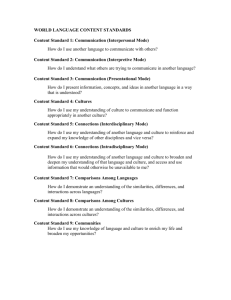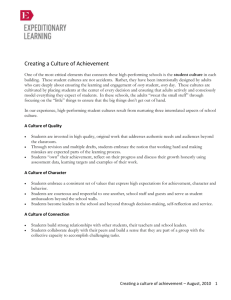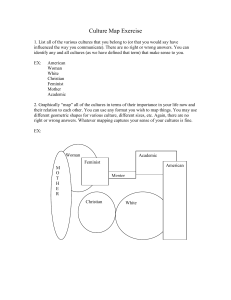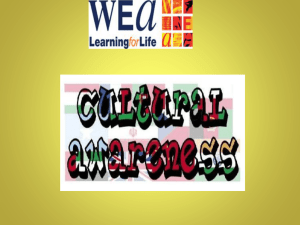dokument Microsoft Word
advertisement
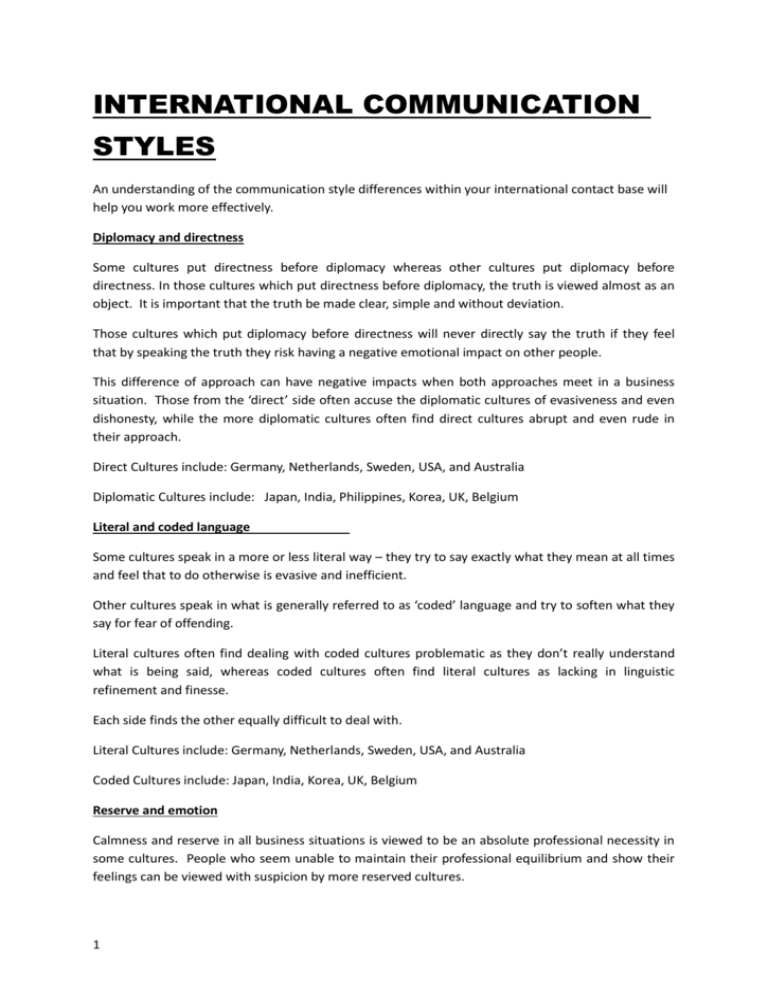
INTERNATIONAL COMMUNICATION STYLES An understanding of the communication style differences within your international contact base will help you work more effectively. Diplomacy and directness Some cultures put directness before diplomacy whereas other cultures put diplomacy before directness. In those cultures which put directness before diplomacy, the truth is viewed almost as an object. It is important that the truth be made clear, simple and without deviation. Those cultures which put diplomacy before directness will never directly say the truth if they feel that by speaking the truth they risk having a negative emotional impact on other people. This difference of approach can have negative impacts when both approaches meet in a business situation. Those from the ‘direct’ side often accuse the diplomatic cultures of evasiveness and even dishonesty, while the more diplomatic cultures often find direct cultures abrupt and even rude in their approach. Direct Cultures include: Germany, Netherlands, Sweden, USA, and Australia Diplomatic Cultures include: Japan, India, Philippines, Korea, UK, Belgium Literal and coded language Some cultures speak in a more or less literal way – they try to say exactly what they mean at all times and feel that to do otherwise is evasive and inefficient. Other cultures speak in what is generally referred to as ‘coded’ language and try to soften what they say for fear of offending. Literal cultures often find dealing with coded cultures problematic as they don’t really understand what is being said, whereas coded cultures often find literal cultures as lacking in linguistic refinement and finesse. Each side finds the other equally difficult to deal with. Literal Cultures include: Germany, Netherlands, Sweden, USA, and Australia Coded Cultures include: Japan, India, Korea, UK, Belgium Reserve and emotion Calmness and reserve in all business situations is viewed to be an absolute professional necessity in some cultures. People who seem unable to maintain their professional equilibrium and show their feelings can be viewed with suspicion by more reserved cultures. 1 People from certain other cultures, however, view the use of emotion in some business situations as a sign of real engagement and interest in the process. Lack of emotion is viewed by these people as a sure sign of disinterest. This difference often leads to people misreading the intentions and emotions of their counterparts. ‘Emotional’ cultures view their ‘reserved’ counterparts as disengaged whist the ‘reserved’ cultures will feel that their more ‘emotional’ colleagues are only acting that way because they know they are wrong! On both occasions, both sides are misinterpreting badly. Reserved Cultures Include: UK, Sweden, Netherlands, Japan, India and Philippines. Emotional Cultures Include: Italy, Spain, Greece, USA, Saudi Arabia, and Brazil. Self-promotion and self-deprecation Certain cultures find it difficult to speak positively about themselves and prefer to understate their abilities and self-deprecate about themselves in general. Other cultures, however, are much more self-promotional and would find it bizarre to say they were not very good at something when in fact they were skilled in that area. These cultures will only say they are not good at something if they genuinely have a problem in that area. People from cultures which prefer understatement often find colleagues and clients from more selfpromotional cultures to be aggressive and arrogant whereas people from the more self-promotional cultures will often take on face value the understatement of other cultures – they believe them if they say they have a weakness! Self-deprecating cultures include: Japan, China, Korea, UK, Finland. Self-promotional cultures include: USA, Australia, France, Brazil. Written and spoken word Some cultures place far greater emphasis on the importance of written communication between people. Only when something has been communicated in writing does that issue become a reality Other cultures place much greater emphasis on the value of spoken communication – things are only really believed when they have been communicated by people with whom they have a strong, trusting relationship. This simple fact can have a major impact on communication flow and the achievement of objectives within an international team. Do you communicate to each team member in exactly the same format regardless of their cultural background? Might it be a good idea to communicate more information orally to certain people if you want them to fully ‘buy-in’ to what you want to achieve? Written-word cultures include: Germany, UK, USA, Sweden, and Netherlands. Spoken-word cultures include: Spain, Italy, Saudi Arabia, India, and Brazil. 2

